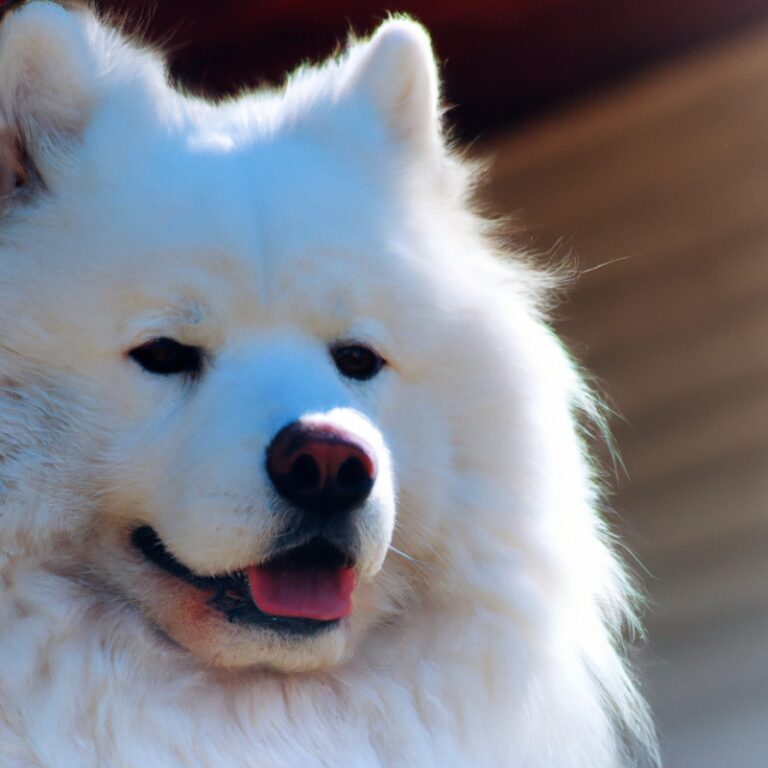Common Samoyed Training Mistakes To Avoid – Your Key to Successful Dog Training!
Key Takeaways:
- Start early socialization to prevent behavioral issues.
- Use positive reinforcement techniques for effective training.
- Consistency is key for successful Samoyed training.
- Avoid punishment-based training methods to build trust with your dog.
Are you finding it a bit challenging to train your Samoyed?
Don’t worry, you’re not alone! Samoyeds are beautiful and intelligent dogs, but their independent nature and strong will can sometimes lead to training difficulties.
Luckily, I’m here to share my expertise and help you avoid some common training mistakes.
From inconsistent routines to punitive methods, there are several pitfalls to steer clear of.
In this article, I’ll guide you through the most common training mistakes to avoid when working with your Samoyed.
Get ready to improve your training techniques and strengthen the bond with your furry companion!
| Mistake | Description |
| Lack of Consistency | Inconsistent training methods confuse the Samoyed and make it difficult for them to understand what is expected of them. |
| Using Harsh Punishments | Samoyeds are sensitive dogs and respond better to positive reinforcement. Using harsh punishments can lead to fear or aggression. |
| Ignoring Socialization | Proper socialization is crucial for a Samoyed’s overall well-being. Avoiding it can lead to behavioral problems. |
| Not Establishing Boundaries | Samoyeds need clear rules and boundaries to feel secure. Without proper boundaries, they may exhibit undesirable behaviors. |
| Skipping Basic Obedience Training | Basic obedience training sets the foundation for more advanced skills. Skipping it can make training more challenging in the long run. |
| Lack of Patience | Training a Samoyed requires patience and consistency. Impatience can hinder progress and cause frustration. |
Common Samoyed Training Mistakes
Lack of consistency
Lack of consistency is one of the most common mistakes in Samoyed training. It’s important to remember that dogs thrive on routine and repetition.
If you’re inconsistent with your commands, expectations, or rewards, it can confuse your Samoyed and make it harder for them to learn.
To avoid this, establish clear rules and expectations from the beginning and consistently reinforce them. Use the same commands and gestures each time, and ensure that everyone in your household is on the same page.
Consistency is key for effective Samoyed training.

Inadequate socialization
Inadequate socialization can be a major training mistake when it comes to Samoyeds.
If your Samoyed isn’t exposed to different people, animals, and environments from a young age, they may become fearful or anxious in new situations.
This can lead to behavioral issues, such as aggression or excessive barking.
To avoid this, make sure to expose your Samoyed to a variety of experiences and situations early on, in a positive and controlled manner.
This will help them become well-rounded and confident dogs.

Using punishment-based methods
Using punishment-based methods for Samoyed training can have negative consequences.
Punishment can create fear, anxiety, and aggression in your dog, leading to a strained relationship.
It hinders their ability to learn and can damage their trust in you as their owner.
Instead, focus on positive reinforcement techniques using rewards and praise to encourage desired behaviors.
This approach builds a stronger bond and sets the foundation for a well-behaved and happy Samoyed.
Neglecting mental stimulation
Neglecting mental stimulation can be a common mistake in Samoyed training. These intelligent and active dogs require mental exercise to stay happy and well-behaved.
Without it, they may become bored, restless, and prone to destructive behavior.
To avoid this, provide your Samoyed with puzzles, interactive toys, and training sessions that challenge their minds. Engage them in activities like obedience training, agility, and scent work.
Remember, a stimulated mind leads to a happy and well-behaved Samoyed.
Failing to establish leadership
Failing to establish leadership can hinder your Samoyed’s training progress. Dogs are pack animals and need a strong leader to guide them.
Without clear leadership, your Samoyed may become confused and disobedient.
To establish yourself as the leader, set boundaries, enforce rules consistently, and provide clear and confident instructions. Avoid being too lenient or letting your Samoyed take control.
By establishing strong leadership, you’ll create a harmonious and well-behaved relationship with your furry friend.

How to Avoid Training Mistakes
Establish a consistent training routine
To establish a consistent training routine with your Samoyed, focus on the following steps:
- Set a regular schedule: Designate specific times of the day for training sessions. This helps your Samoyed understand when to expect training and keeps them engaged.
- Be consistent with commands: Use the same cues and words for each command. This helps your Samoyed associate the command with the desired behavior.
- Keep training sessions short and frequent: Short, frequent sessions of about 10-15 minutes are more effective than longer sessions. This keeps your Samoyed focused and prevents boredom.
- Use positive reinforcement: Reward your Samoyed with treats, praise, and affection when they perform the desired behavior correctly. This encourages them to repeat the behavior in the future.
- Be patient and persistent: Consistency is key when training a Samoyed. It may take time for them to learn and understand commands, so be patient and continue practicing regularly.
By establishing a consistent training routine, you will create a structured environment for your Samoyed to learn and thrive.
Socialize your Samoyed from an early age
Socialization is key for your Samoyed’s development.
Start early to expose them to various people, animals, and environments.
Take them on walks, visits to the park, and introduce them to new experiences.
This helps them become well-rounded and friendly.
Encourage positive interactions and reward good behavior.
Gradually expose them to new situations, ensuring they remain calm and confident.
Socializing your Samoyed from an early age will lead to a happier and better-adjusted dog.
Use positive reinforcement and reward-based training methods
Using positive reinforcement and reward-based training methods is key when training your Samoyed. Instead of using punishment or harsh techniques, focus on rewarding your dog’s desired behaviors.
This can include treats, praise, or toys.
By consistently reinforcing good behavior, your Samoyed will be more motivated to repeat those behaviors in the future. Remember to be patient and consistent in your training approach, and you’ll see great progress with your furry friend.
Provide regular mental stimulation through toys and puzzles
One important way to keep your Samoyed mentally stimulated is by providing them with toys and puzzles. These types of activities engage their minds and prevent boredom.
Look for toys that require problem-solving, such as treat-dispensing puzzles or interactive toys.
Additionally, rotate their toys regularly to keep things fresh and exciting. By giving them regular mental stimulation through toys and puzzles, you can help keep your Samoyed happy and engaged.
Establish yourself as the leader through clear rules and boundaries
To establish yourself as the leader in your Samoyed’s training, it’s important to set clear rules and boundaries.
This will help your dog understand who is in charge and what behavior is expected.
Here’s how you can achieve this:
- Consistency: Consistently enforce the rules and expectations you set for your Samoyed. This will help establish a clear understanding of what behaviors are acceptable and what are not.
- Be firm but fair: Be confident and assertive in your training approach, but also show your dog love and understanding. Strike a balance between being firm and kind to gain your dog’s respect and trust.
- Set clear boundaries: Clearly define what is allowed and what is not. Use positive reinforcement to reward desired behaviors and redirect or correct unwanted behaviors. This will teach your dog to follow the rules and understand their boundaries.
- Be patient and persistent: Training takes time and effort, so be patient with your Samoyed. Consistently reinforce the rules, and don’t give up if progress is slow. Persistence is key to establishing yourself as the leader.
Remember, clear rules and boundaries help your Samoyed recognize your authority and ensure a smooth and respectful training experience.
Frequently Asked Questions (FAQs)
How long does it take to train a Samoyed?
Training a Samoyed can take anywhere from a few weeks to several months, depending on various factors.
It’s important to remember that each dog is unique and will progress at its own pace.
The key to successful training is consistency, patience, and positive reinforcement.
By establishing clear rules and expectations, providing regular training sessions, and rewarding good behavior, you can help your Samoyed become a well-behaved and obedient companion.
Can I train my Samoyed on my own or should I seek professional help?
You can train your Samoyed on your own, but seeking professional help can be beneficial. Training a Samoyed requires time, patience, and consistency.
While you may be able to teach them basic commands and manners, professional trainers have expertise in handling specific behaviors and can provide guidance tailored to your Samoyed’s needs.
They can help address issues such as aggression, separation anxiety, or excessive barking. Additionally, they can offer valuable advice on positive reinforcement techniques and socialization.
However, if you choose to train your Samoyed on your own, make sure to educate yourself about their breed characteristics, behavior patterns, and training methods.
Consistency and positive reinforcement are key. Remember to be patient and consistent with your training efforts.
What are some essential commands to teach a Samoyed?
Some essential commands to teach a Samoyed are:
- Sit: Teach your Samoyed to sit on command. This is a basic command that helps with control and obedience.
- Stay: Train your Samoyed to stay in one place until you give them the signal to move. This command is essential for their safety.
- Come: Teach your Samoyed to come to you when called. This command is crucial for recall and is important for their safety when off-leash.
- Leave it: Train your Samoyed to ignore or drop items they should not have in their mouth. This command is vital for their well-being and prevents them from ingesting harmful objects.
- Heel: Teach your Samoyed to walk beside you without pulling on the leash. This command is beneficial for leash manners and control during walks.
Remember, consistency, positive reinforcement, and patience are key when training your Samoyed. Practice these commands regularly and reward them for their good behavior.
Can Samoyeds be trained to participate in specific activities such as agility or obedience trials?
Yes, Samoyeds can be trained to participate in activities such as agility or obedience trials. They are intelligent and eager to please, making them great candidates for training.
With consistent, positive reinforcement methods and proper guidance, Samoyeds can learn and excel in various activities.
It is important to start training early and be patient and consistent in your approach. Remember to make the training sessions fun and engaging for your Samoyed to keep them motivated.
With the right training and socialization, Samoyeds can thrive in a variety of activities and competitions.
Final Verdict
It is important to avoid common training mistakes when it comes to Samoyeds. Lack of consistency, inadequate socialization, punishment-based methods, neglecting mental stimulation, and failing to establish leadership can hinder your Samoyed’s progress.
To avoid these mistakes, establish a consistent training routine, socialize your Samoyed from an early age, use positive reinforcement and reward-based methods, provide regular mental stimulation, and establish yourself as the leader.
By following these guidelines, you can effectively train your Samoyed and cultivate a strong bond based on trust and respect. Remember, patience, consistency, and positive reinforcement are key to successful Samoyed training.







